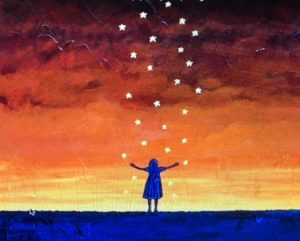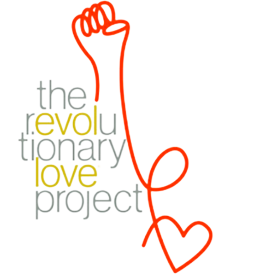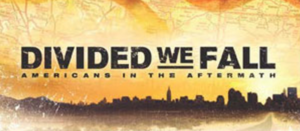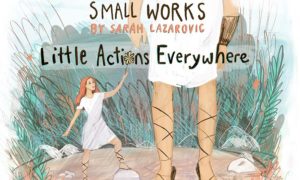Gita.
September 14, 2018“He who hath found the Peace Within, and who hath been so illumined that he findeth his joy and happiness within himself–and knoweth that within him is the Kingdom of Heaven–verily, he gainith the peace of the Real Self, because he hath blended himself with the Real Self. They, from whom the illusion of duality and separation hath been removed, see all Life as One, and emanating from One. The welfare of the All becomes the welfare of the One to them; and to such cometh the Peace of the One. This Peace which passeth all Understanding, cometh to those who know themselves for what they are, rather than for what they seem to the smoke-bonded eyes of the world. Being freed from the bondage of desire and sense-passion they master their thoughts by their Wisdom–and their senses by their thoughts.”
Bhagavad Gita
Divided we fall.
“It’s often he small acts of ordinary people that
define the American identity.”
Dear Friends,
We are excited to announce that the United Shades of America episode we worked on with W. Kamau Bell just won an Emmy! It is the first cable episode on Sikhs in America — the first time the nation has seen Sikhs tell our own stories, in our own voices, for an hour on television. And now it has received the highest honor in the industry!
Let this win be a little beacon of light.
Today, as we mark seventeen years since 9/11, we believe that the best way to honor the thousands who died on this day and in its aftermath is to hear the STORIES that help us reckon with the past. The most brutal policies and rhetoric that drive hate in America today were first forged in the wake of 9/11. Our stories help us understand how to stand in solidarity with Muslims, Sikhs, and immigrants — and how to birth a new future.
So on this anniversary, we invite you to hear a story you have never heard before.
Watch the Emmy-award winning “Sikhs in America” on DIRECTV here. Then scroll down for a list of films, books, and toolkits that help us understand 9/11 and hate in America today. Some we produced, others we curated, all center Sikh American stories the nation needs to hear. Starting with this episode of United Shades:
Our award-winning film Divided We Fall explores hate, bigotry, and belonging in America in the aftermath of 9/11. For the last decade, the film has been used on 300+ campuses to spark dialogue and reflection. It is now available online for free and comes with up-to-date teacher´s guides and dialogues questions to use in your classroom, house of worship, or even your living room.
6 words at a time.
If you were asked to sum up your thoughts about race in six words, could you do it?
Eight years ago, Michele Norris, former host of NPR’s All Things Considered, asked people attending the book tour for her 2010 memoir, The Grace of Silence, to do just that.
The exercise was meant as a conversation starter, a way to engage people on the uncomfortable subject by having them write their thoughts on postcards and then share them with others—directly and online. But Norris’ Race Card Project has become much more.
Businesses, churches, and other institutions have used it to facilitate uneasy discussions around race.
The idea is even more relevant today. Nearly two-thirds of Americans say racism remains a problem in the United States, according to a recent NBC poll. In fact, almost half of those polled say they believe race relations are getting worse.
In addition to helping start difficult conversations, the postcards and their backstories also serve as a sort of time capsule, marking specific events: The first Black president, Black Lives Matter, the Muslim ban, understanding of White fragility, and the most openly racist president in recent history.
“I think it has great value over time,” said Norris, who now heads up a program called The Bridge at Aspen Institute, which focuses on race, identity, and inclusion. “I’ve done a lot of high-order research. What I would give to have an archive like this to better understand the lived experience of race and identity from the 1930s, or 1940s, 1960s, or even the 1970s, which wasn’t that long ago.”
“And this project, this crazy project that started on the third floor of my house, I think will provide a unique window for people who are trying to understand the moment that we’re living in right now,” she says.
Full piece:
Little things do matter.
Sarah Lazarovic
“I sign petitions. I refuse plastic bags. I try to eat mostly vegetables. I turn off the light when I leave a room. I am one of those people whom other people roll their eyes at. So I was delighted when fun illustrator Sarah Lazarovic suggested a regular YES! feature called Small Works, which would prove—charts! science!—that our little individual actions really do help create big changes.
P.S. We want to know what your small actions are! Sarah will select a few to illustrate and show you how important your small works are.”





